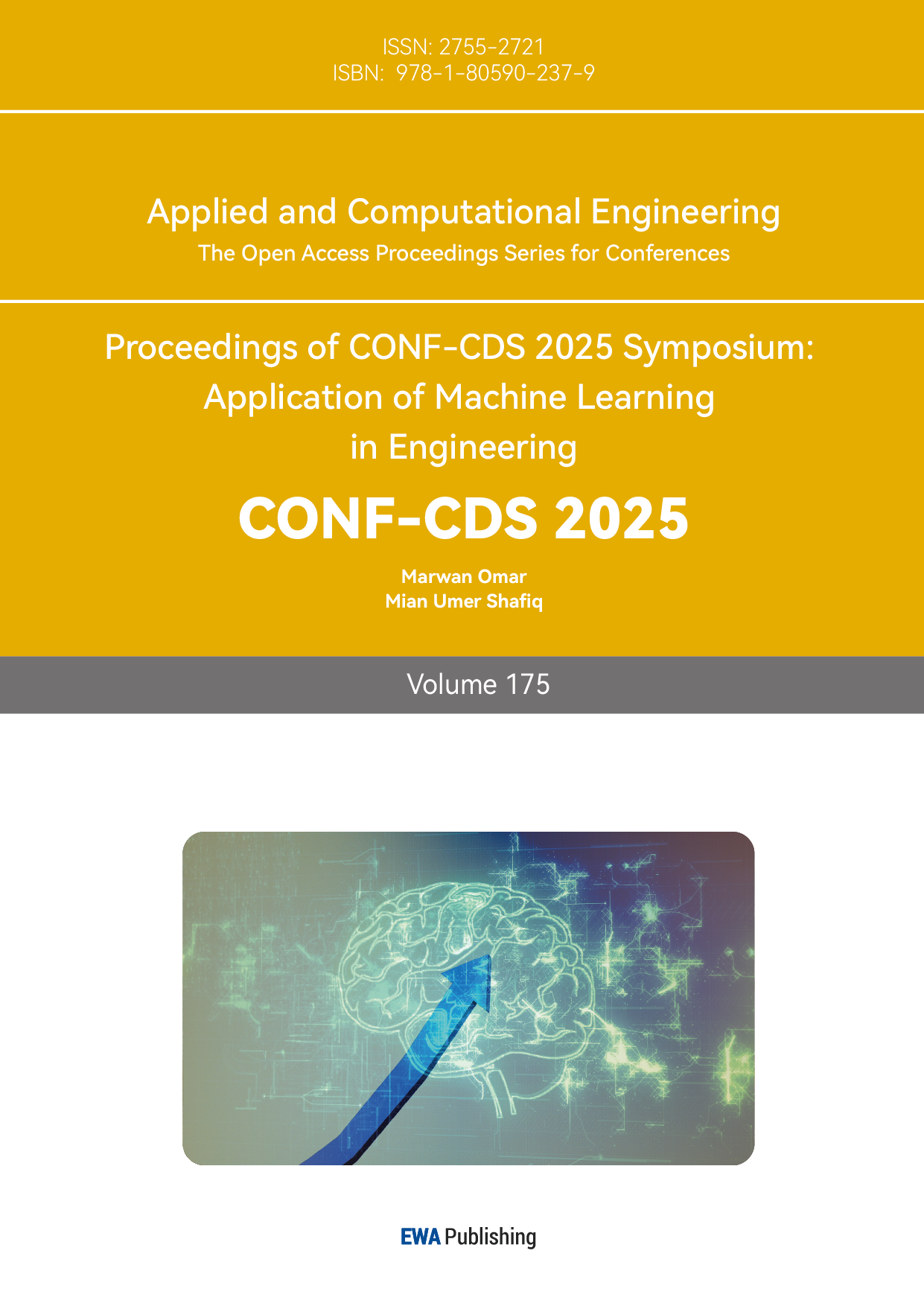References
[1]. Zhang, Y. (2020). Improved fault diagnosis method for bearings based on sparse autoencoders. Mechanical Systems and Signal Processing, 144, 106876.
[2]. Rai, R., et al. (2021). Machine learning-driven predictive maintenance in smart factories. Journal of Intelligent Manufacturing, 34(3), 789–802.
[3]. Chai, H. X., Jin, X., Xu, C., & Xia, C. Q. (2023). A review of 5G-enabled machine learning for industrial IoT. Chinese Journal of Automation, 48(3), 257–276.
[4]. Rai, R., et al. (2021). Machine learning in manufacturing and Industry 4.0 applications. International Journal of Production Research, 59(16), 4773–4778.
[5]. Zhang, Y. (2020). Improved fault diagnosis method for bearings based on sparse autoencoders. Mechanical Systems and Signal Processing, 144, 106876.
[6]. Yu, D., & Deng, L. (2011). Deep learning and its applications to signal and information processing. IEEE Signal Processing Magazine, 28(1), 145-154.
[7]. Sun, L., et al. (2018). Enhanced PCA for fault detection in industrial boilers. Energy Conversion and Management, 176, 102-113.
[8]. Demethual, J., et al. (2015). Fault diagnosis in raw material handling systems using feature extraction and clustering. Journal of Process Control, 35, 120-132.
[9]. Duan, Y. J., Lv, Y. S., Zhang, J., et al. (2016). Deep learning for control: The state of the art and prospects. Acta Automatica Sinica, 42(5), 643-654.
[10]. Bunse, K., et al. (2011). Integrating energy efficiency in industrial management systems. Journal of Cleaner Production, 19(6-7), 662-675.
[11]. Li, Y. J., et al. (2021). A fault diagnosis model for coal mine machinery based on machine learning. Energy and Environmental Protection, 43(10), 241-245.
[12]. Shao, H., Jiang, H., Zhang, X., et al. (2015). Rolling bearing fault diagnosis using an optimization deep belief network. Measurement Science and Technology, 26(11), 115002.
[13]. Ren, H., Qu, J. F., Chai, Y., et al. (2017). Research status and challenges of deep learning in fault diagnosis. Control and Decision, 32(8), 1345-1358.
[14]. Zhang, Y. P. (2023). Application of vibration analysis in rotating machinery fault diagnosis. Metallurgy and Materials, 43(1), 71-73.
[15]. Meng, Y., et al. (2021). Fault detection in industrial boilers using hybrid machine learning models. Energy Reports, 7(4), 1123-1135.
[16]. Gao, H. J. (2023). Fault analysis and treatment in chemical electrical systems. Proceedings of the 7th National Conference on Petrochemical Electrical Technology.
[17]. May, G., et al. (2017). Energy management in Industry 4.0: A roadmap. Procedia CIRP, 61, 299-304.
[18]. International Organization for Standardization (ISO). (2018). ISO 50001: 2018 Energy management systems. Geneva: ISO.
[19]. Rai, R., Tiwari, M. K., Ivanov, D., & Dolgui, A. (2021). Machine learning in manufacturing and Industry 4.0 applications. International Journal of Production Research, 59(16), 4773-4778.
[20]. Zhao, Y. W. (2023). Machine learning algorithms for industrial scenarios. Master’s Thesis, University of Electronic Science and Technology of China.
[21]. Schulze, M., et al. (2016). Energy management in manufacturing: A systematic review. Journal of Manufacturing Systems, 41, 23-37.
[22]. European Commission. (2009). 2020 climate & energy package. Brussels: European Union



